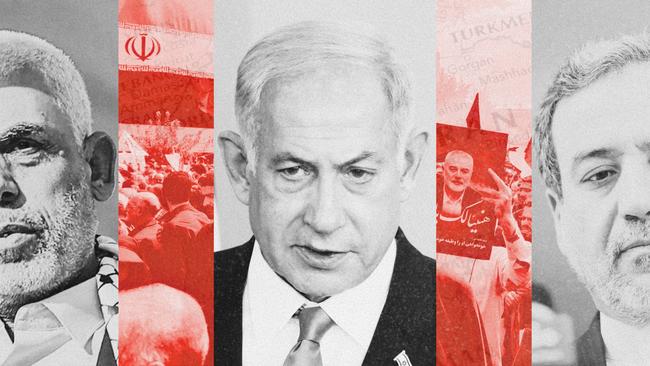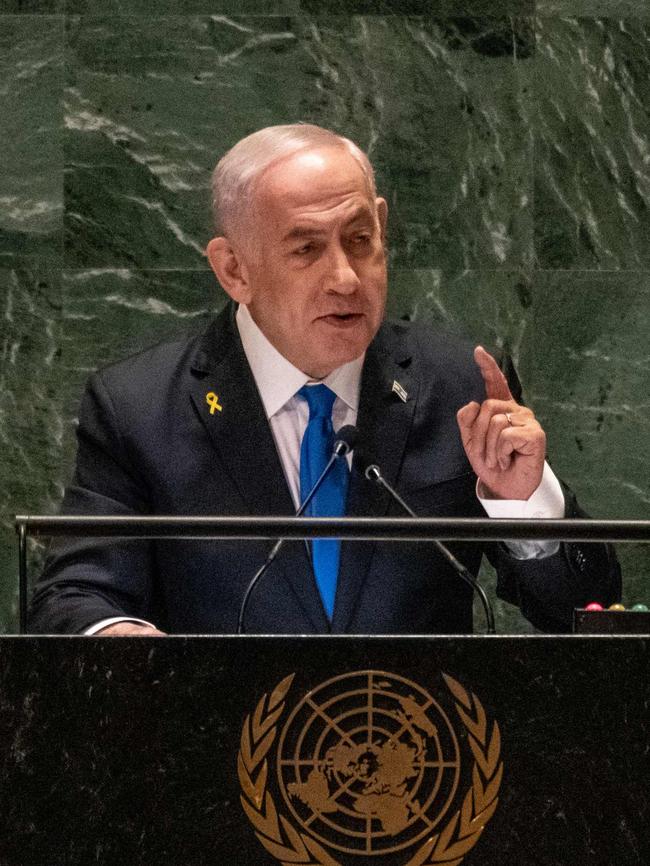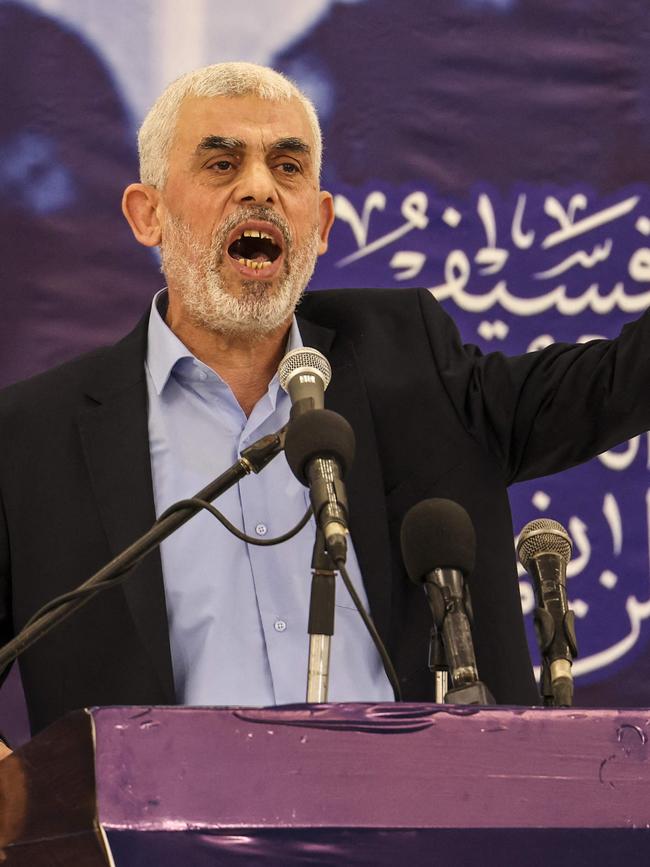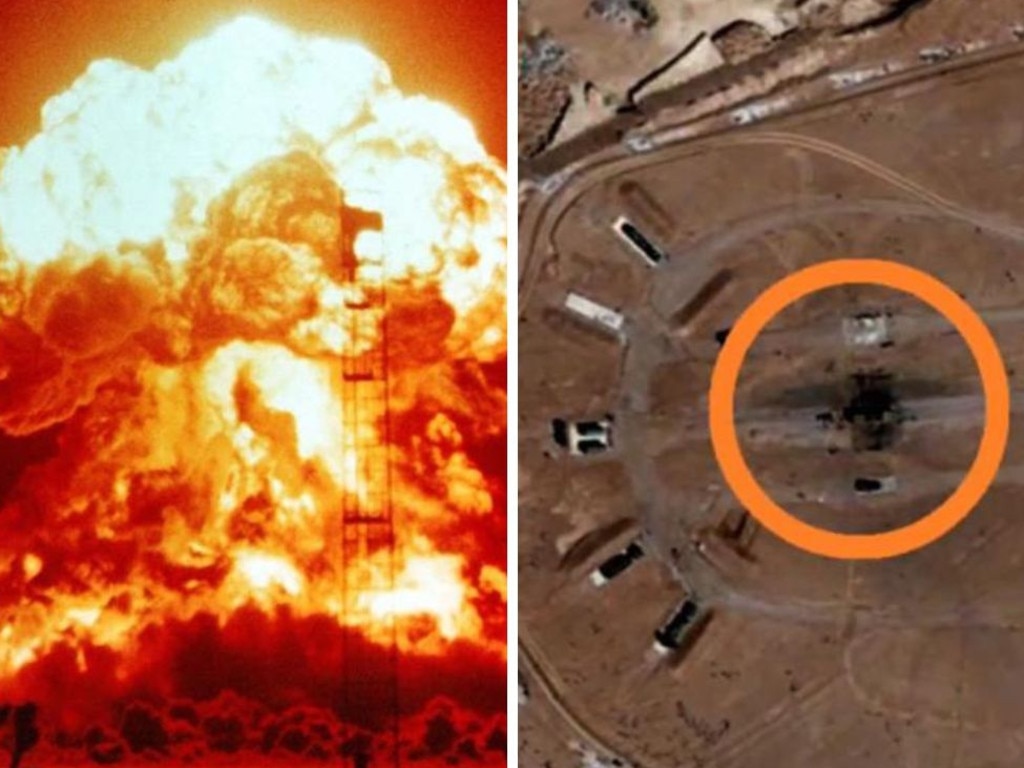
This is why Iranian Foreign Minister Abbas Araghchi is conducting a campaign across the region to convince the Saudis and others to join him against Israel.
But whatever the regional views of Israel and Prime Minister Benjamin Netanyahu, Araghchi’s mission is doomed to fail.
The main reason for this, of course, is that these terrorist groups are also a threat to countries across the region and help expand Iranian power at the expense of their own. Iran and its proxies, including Hamas, Hezebollah and the Houthis, are destabilising the region. And, what’s more, they would do so whether there was a war with Israel or not.
The Gulf states and regional powers such as Turkey and Egypt have watched for decades as Tehran manufactured political instability among its regional neighbours while cultivating and arming violent proxies within destabilised border areas.
This is the story of Iran in Iraq and the Popular Mobilisation Forces that the Iranian Republican Guard Corps groomed and still supports. It’s also the story of Iranian-backed pro-Assad militias in Syria, which have joined Hezbollah in attacking Israel since October 7 last year.

This is also the case in Yemen, where Iran-backed Houthis defeated the Saudi and United Arab Emirates-supported Yemeni government in a civil war.
Where Iran arms and trains armed groups inside the borders of other countries, it accelerates institutional weaknesses and feeds chaos, dysfunction and economic stagnation. Syria and Lebanon are two of the classic case studies. You also can extend this chaos-sowing influence to Iran’s supply of missiles and drones to Vladimir Putin in his war against Ukraine.
Turkey welcomes Iranian weakness and Israel’s systematic dismantling of Hezbollah’s leadership because this lessens Iranian influence on Syria and Lebanon. This in turn can reduce the flow of Syrian refugees into Turkey.
The Saudis, moreover, welcome a weakened Iran for the potential leverage it gives over Tehran’s support to the Yemeni Houthis and for the reduced military threat Iran poses to the region. Almost every Arab nation supports Israel’s attack on Iran’s decades-long strategic cultivation of armed proxies. They just won’t say so publicly.
But it’s striking that none of these states has reduced its relations with Israel as the war unfolds. Even the Saudis have signalled that the normalisation of relations with Israel, deliberately disrupted by Yahya Sinwar’s organised atrocities on October 7 last year, can proceed when ceasefires are reached in the war.
While Sinwar had hoped Hezbollah and Iran would join Hamas in its attack on Israel on October 7, he would’ve had no hope of the Arab states surrounding Israel. He knew that despite statements of political solidarity with Palestinians, no regional government really wants to carry the burden of the Palestinians more than they already do.
Egypt’s insistence on keeping its border to Gaza shut to fleeing Palestinians is a good measure of things because it highlights the dominance of interests over emotions.
From Jordan to the UAE, from Saudi Arabia to Egypt, Middle Eastern states have clamped down on pro-Palestinian protests since the Hamas attack, largely because they see them as threatening the domestic stability of their own states. The Palestinian issue is seen by them as a “gateway to dissent”.
Another measure of regional thinking is the stalled detente between Iran and Saudi Arabia, trumpeted as a diplomatic breakthrough brokered by China in March last year.
Since the beginning of the war its implementation has been stuck on low-level items because Iran is refusing to reduce its support of dangerous armed groups in the region, with the Houthis being highest on Riyadh’s list.
Iran continues to pretend that it’s not the key backer of the Houthis. Tehran is also clearly doubling down on Hezbollah to stop its most powerful terrorist proxy from being irreparably damaged by Israel and losing the group’s powerful role within Lebanese politics.
Many Israelis are critical of the Netanyahu government. While they’re clear about the existential threat that Hezbollah, Hamas and Tehran pose – even with the recent bounce in support for Netanyahu – many Israelis want a new government that can build on the country’s resurrected military deterrent power once this phase of the war is over.

Many Israelis support the current fighting to damage Hezbollah and remove a much larger threat to northern Israel than Hamas ever posed from Gaza. Like the Saudis, Israelis understand the strategic problem Iran poses to Israel and to the broader region.
None of this is new. Israel is fighting a regional war against Iran and its proxies and the results of this could be a less dangerous Middle East with more open space for regional nations to craft diplomatic solutions and assist weakened states once Iran’s toxic reach is reduced.
It’s time for policymakers in places such as Australia and Europe to not just grapple with the larger regional picture – which provides the context for the war – but also to communicate some of it back to their populations and use it to shape their policies.
That would make a healthy change from the increasingly empty calls for unilateral ceasefires and tepid condemnation of the terrorism that Iran is now so obviously cultivating and enabling across this intricate and essential region of the world.
Michael Shoebridge is director of Strategic Analysis Australia.






There’s an open secret among the governments of the Middle East that’s driving their respective approaches to the war between Israel and Iran: they all welcome a weakened Iran and the dismantling of its terrorist proxies almost as much as Israel does.